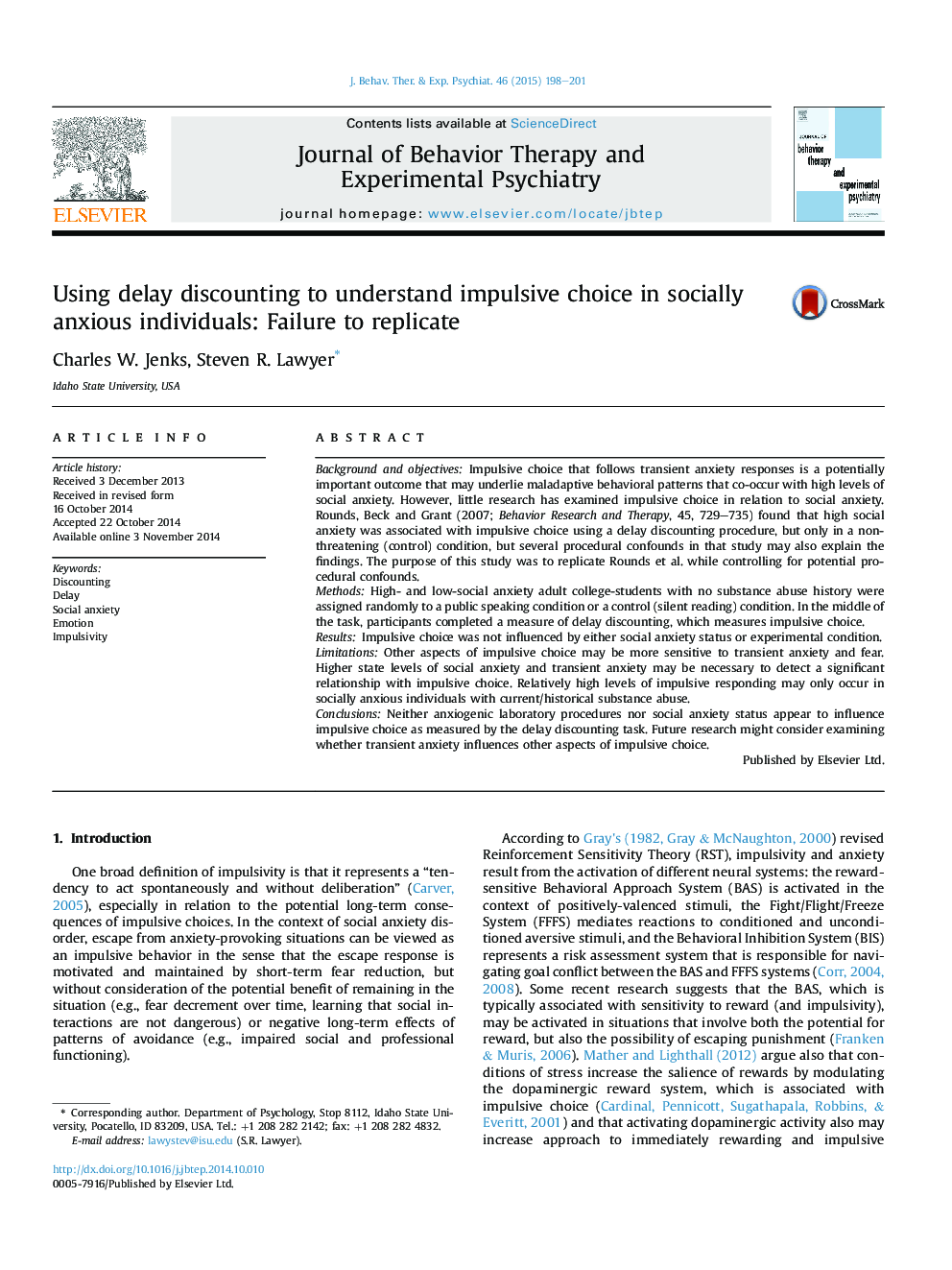| کد مقاله | کد نشریه | سال انتشار | مقاله انگلیسی | نسخه تمام متن |
|---|---|---|---|---|
| 910361 | 1473069 | 2015 | 4 صفحه PDF | دانلود رایگان |
• We examine impulsive choice among high- and low-socially anxious adults.
• We examine impulsive choice patterns in a public speaking versus control condition.
• Behavioral processes that occur when people are anxious is relevant to understanding the mechanisms underlying social anxiety.
• Neither social anxiety status nor experimental condition was associated with impulsive choice patterns.
• Failed to replicate previously published findings regarding social anxiety and impulsive choice.
Background and objectivesImpulsive choice that follows transient anxiety responses is a potentially important outcome that may underlie maladaptive behavioral patterns that co-occur with high levels of social anxiety. However, little research has examined impulsive choice in relation to social anxiety. Rounds, Beck and Grant (2007; Behavior Research and Therapy, 45, 729–735) found that high social anxiety was associated with impulsive choice using a delay discounting procedure, but only in a non-threatening (control) condition, but several procedural confounds in that study may also explain the findings. The purpose of this study was to replicate Rounds et al. while controlling for potential procedural confounds.MethodsHigh- and low-social anxiety adult college-students with no substance abuse history were assigned randomly to a public speaking condition or a control (silent reading) condition. In the middle of the task, participants completed a measure of delay discounting, which measures impulsive choice.ResultsImpulsive choice was not influenced by either social anxiety status or experimental condition.LimitationsOther aspects of impulsive choice may be more sensitive to transient anxiety and fear. Higher state levels of social anxiety and transient anxiety may be necessary to detect a significant relationship with impulsive choice. Relatively high levels of impulsive responding may only occur in socially anxious individuals with current/historical substance abuse.ConclusionsNeither anxiogenic laboratory procedures nor social anxiety status appear to influence impulsive choice as measured by the delay discounting task. Future research might consider examining whether transient anxiety influences other aspects of impulsive choice.
Journal: Journal of Behavior Therapy and Experimental Psychiatry - Volume 46, March 2015, Pages 198–201
